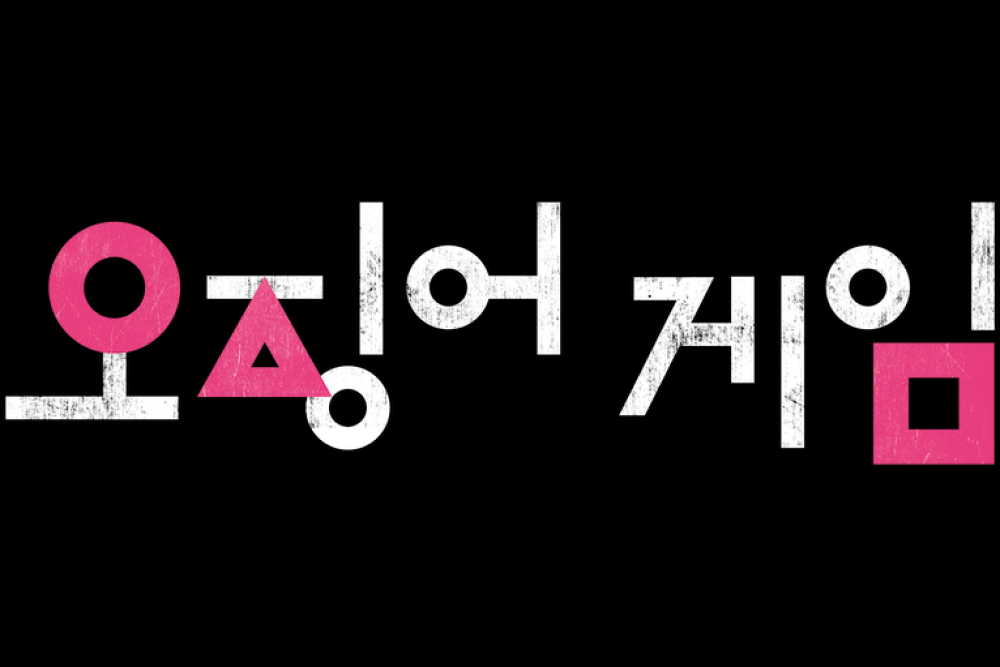[SPOILER WARNING: This article discusses several plot details of Netflix’s Squid Game.]
Throughout the fall months of 2021, the Korean series Squid Game was a top ten listing on Netflix. It shares elements in common with movies such as the 2005 Eli Roth film Hostel and the entire Hunger Games franchise — the suffering of the poor and downtrodden serves as perverted entertainment for the incomprehensibly and unconscionably wealthy. By situating the class struggle in a 9-episode hypothetical thought experiment, the series distances the viewer from the reality behind the metaphor and prevents their analysis from being clouded by pre-existing political commitments.
The main idea of the series is that participants compete for a growing pile of cash, contained in a giant transparent piggy bank, hanging over the room in which contestants spend most of their time. Every time one of the players dies, more money is added to the bank. They participate in a variety of traditional children’s games. The winners live another day to compete for the whole pot, while the losers are exterminated and become for the others simply more money in the pile. Often the contestants are put in a position to kill one another and are frequently more than eager to do so.
Hundreds of players choose to participate in the Squid Game, all of them down and out in some way or another. The word “choose” is used loosely here. The candidates enter the competition, are allowed to leave, and then when given the option to participate again, almost all of them do. The common line of reasoning is that life is worse outside of the game — intense suffering is bound to happen, but at least in the game that suffering is more ordered and predictable. In the world outside, a person can follow all of the “rules” or, in any case, the set of norms that we’ve come to expect will point the direction of their lives away from misery and toward happiness. They can do all that and still be hit in the face with the absurdity of lived experience — with the machinations of an indifferent universe that doesn’t care about the rules and deals out misery, suffering, and death indiscriminately to rule followers and rule breakers alike. In the game, players don’t know who will go first or last, nor do they know which skills and abilities will be useful for success in the highly contingent circumstances in which they find themselves. The recognition of the absurdity of their condition is clear to the viewer from the very beginning. As the series highlights throughout and stresses in the final episode, the condition of the human person surviving in the real world is different only in the respect that it is worse while masquerading as better. We have no control over the circumstances into which we are born: whether our parents are kind and supportive or cruel and destructive, whether they have wealth to pass along, whether we are born into environments with stable and fair political systems, whether those environments have sufficient resources, whether we are born a member of an oppressed group, or whether we have skills and abilities that will make us well positioned to survive in the environments into which we are born (to name just a few). If this is what we can expect out of life, why not sign up for a game one stands a fighting chance of winning?
The idea that the characters “choose” to participate in the game motivates reflection on the nature of coercion. To how much misery and manipulation can a person be subjected before their decisions no longer count as truly free? If you think playing a game is your only way to survive another day, or your only chance to protect your mother or your child, odds are that you will end up playing. To do otherwise is to select an alternative that is not a reasonable second option. The viewer knows what is at stake in the game, and we can empathize with the fact that the players end up back inside. No one is likely to think that the characters that finance and run the competition are heroes — they are exploiting the dire circumstances of desperate people. In the real world, the losers of life’s socioeconomic lottery, like the players in the Squid Game, are often trapped in a state of unfreedom. While powerful people wearing the masks of representatives and leaders enact policies to make the rich richer on the backs of the poor, the least well off are often left, through no fault of their own, to “choose” between only bad options. Then we blame them for it. Rather than recognizing the contingency of all of the facts of our existence, we tend to treat those that suffer as if they do so purely as a result of their own life choices.
There is no justice in the game — wrongdoers engage in selfish and harmful acts with impunity. Far from being punished, such people are actually rewarded. The kindest and most empathetic people gain nothing from their good works. If people choose compassion and fellow-feeling, they’ll have to do so in recognition of the intrinsic value of those things rather than because of what they hope to get out of them. In this way, Squid Game is another manifestation of Glaucon’s challenge from Plato’s Republic. In Book Two of this most famous of Plato’s dialogues, the conversants attempt to answer the question “why be moral?” Glaucon makes the argument that, if people could get away with it and avoid the consequences, they would behave selfishly to the point of doing terrible things. He provides the fictional case of a man who is given a ring — the Ring of Gyges — that renders him invisible. Glaucon claims that the man would use it to steal all of the king’s riches and to rape his wife. Why should he care, if he will never be caught? Similarly, participants in the Squid Game either die or live to tell the tale exactly as they prefer with no one to correct them on the more gruesome details. Why shouldn’t participants behave in exactly the way they think will help them win?
Socrates’s rejoinder is that being good is valuable for its own sake, and the main character of Squid Game — Seong Gi-hun — is a Socratic hero. With one notable exception, he refuses to harm or kill other participants and seems to keep the humanity of others in full view throughout the proceedings. When he feels an impulse to deviate from this norm, he is quickly reminded by a friend, “that’s not you.” Though he seems blind to his own virtuous character, his behavior demonstrates an unwillingness to give up on virtue for virtue’s sake or on the inherent value of life and friendships. The game concludes with the Socratic hero as the winner; all of the money is now his and all he wants to do is use it to improve the lives of the people he cares about. Unfortunately, when he emerges from the game, they are all gone. His mother lies dead on the floor of the squalid apartment that they once shared. His daughter has moved to the United States with her mother and stepfather. He is left alone with more money than he ever imagined having in his wildest dreams. Under these conditions, it’s all worthless. What constitutes the good life? Even if we allow (as we should) for a pluralism of views on this topic, most well-considered accounts will agree that it involves delight in knowledge, awe in beauty, joy in hobbies, and the contentment that comes with spending substantial and meaningful time with the people we care about.
Material comfort is not identical to the good life, but economic stability is a necessary condition for people to have the freedom to participate in the goods of life. We can’t spend time with our loved ones if we’re constantly pushing a rock up a hill or, what amounts to the same thing, working for exploitation wages. Squid Game provides us with a hypothetical thought experiment to help us to recognize that what’s true in this fictional universe is no less true in the actual world. If we think just conditions of human life require providing a structure in which everyone has reasonable access to the basic goods of life, then we desperately need to make modifications to our current socioeconomic systems. Otherwise, we’re all just playing a rigged game.


